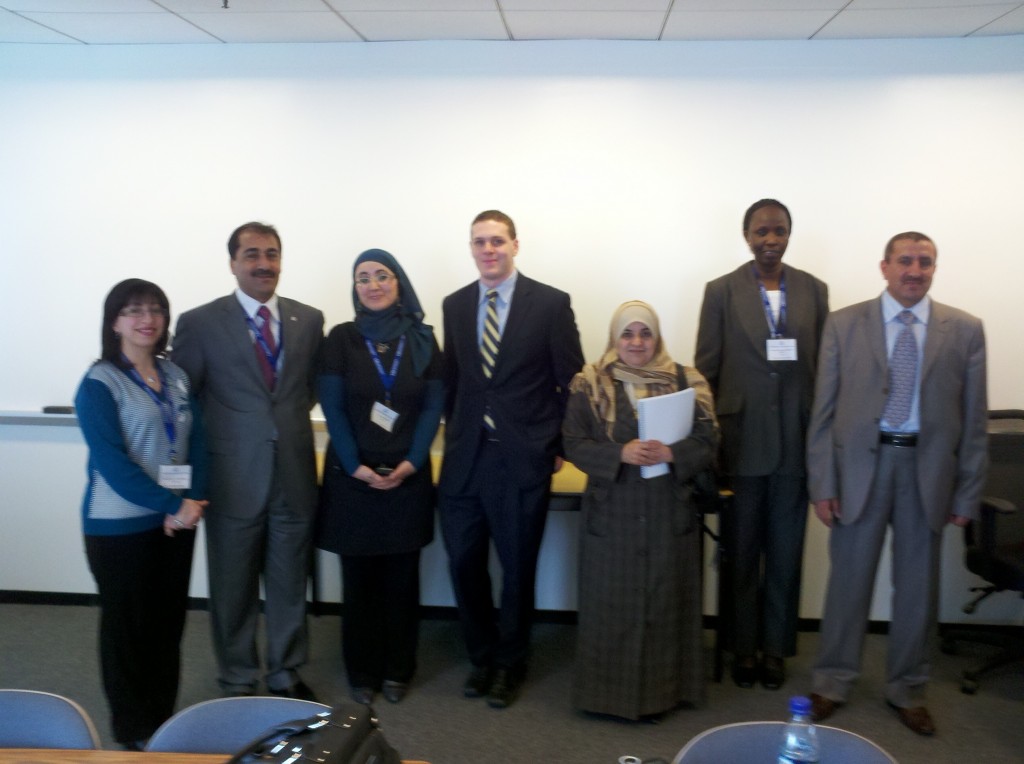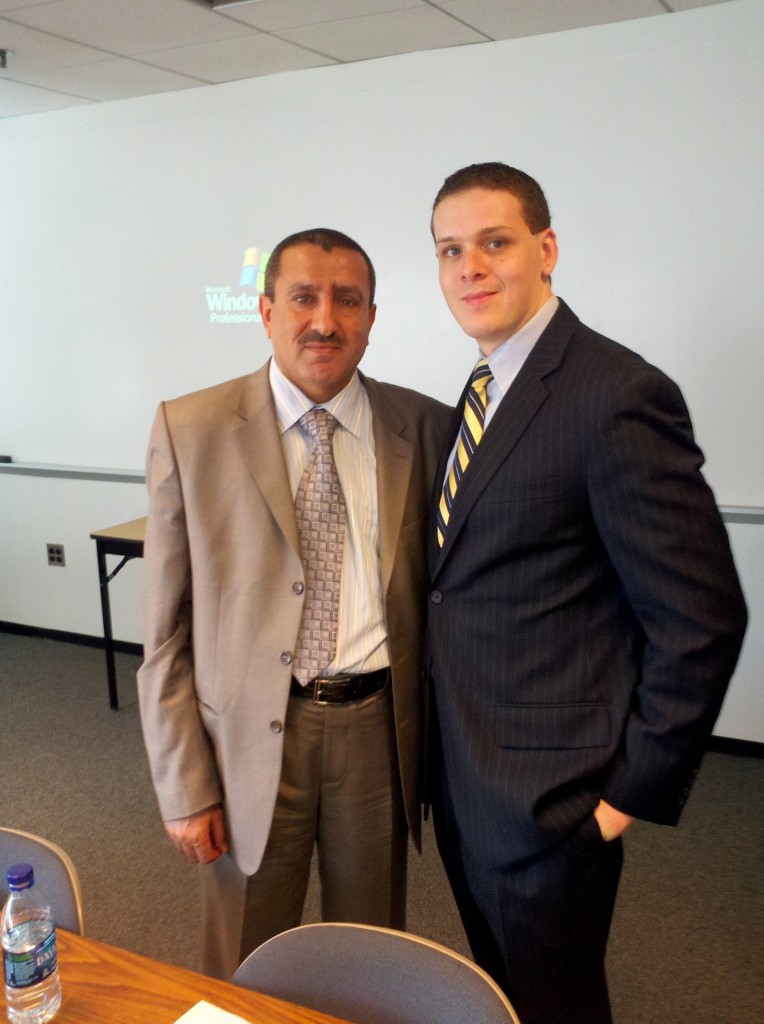 All too often lawyers are critical of such meetings, contending that American lawyers and jurists are influenced by foreign law. I disagree—the door swings both ways. My aim was to introduce our guests not just to how Americans learn about the law, but what the students actually learn. I began the session by handing each guest a copy of the United States Constitution translated into Arabic, courtesy of the Cato Institute. No one in the room had ever seen or read the United States Constitution before.
All too often lawyers are critical of such meetings, contending that American lawyers and jurists are influenced by foreign law. I disagree—the door swings both ways. My aim was to introduce our guests not just to how Americans learn about the law, but what the students actually learn. I began the session by handing each guest a copy of the United States Constitution translated into Arabic, courtesy of the Cato Institute. No one in the room had ever seen or read the United States Constitution before. Arabic Constitution
Arabic Constitution
With the assistance of a simultaneous Arabic translator, I introduced our guests to the Constitution through the case of Snyder v. Phelps, relying on the lesson plan the Harlan Institute designed for high school students. I explained how the case as structured—(Petitioner) Matthew Snyder, father of slain Marine Mathew Snyder, objected to the protests from (Respondents) Fred Phelps and his family, and filed a lawsuit in federal district Court. Next, I explained how our tripartite federal judicial system is structured, discussing the interaction between the judges on the district, appellate, and Supreme Courts.
With the procedural matters out of the way, I moved onto the substantive law. I asked each of them to turn to the page of their pocket Constitution that contained the First Amendment. None of them had ever been exposed to our great Charter. As I read it out loud, and saw their eyes following along in Arabic, I felt a joy that exceeds any other feeling I have ever had as a teacher. It was quite a rush.
 The jurists were very interested in FantasySCOTUS. One judge asked if we could create a version for the Tunisian judiciary. They were also quited interested in,HARLANconnect, the Harlan Institute’s platform to connect lawyers and professors with students using Skype. Several of the members who were responsible for promoting education in their country expressed an interest in Skyping with members of the Harlan network.
The jurists were very interested in FantasySCOTUS. One judge asked if we could create a version for the Tunisian judiciary. They were also quited interested in,HARLANconnect, the Harlan Institute’s platform to connect lawyers and professors with students using Skype. Several of the members who were responsible for promoting education in their country expressed an interest in Skyping with members of the Harlan network.
I look forward to working with my new friends, and helping to promote the study of liberty and the rule of law around the World.
